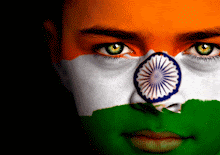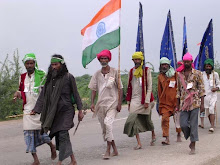
The wife of an Israeli defense envoy to New Delhi was hurt along with several other people when her car was destroyed by an explosive device placed on it by a motorcyclist at a red light. In Tbilisi, the Georgian capital, a similar device was discovered on the car of a local staff member of the Israeli Embassy, but was defused by the police.
Both resembled attacks that have killed five of Iran’s nuclear scientists in recent years, most recently last month. Iran has attributed the assassinations to Israeli agents and has vowed to take revenge. The scientists’ assassinations — along with sabotage of Iran’s nuclear program through cyberwarfare and faulty parts — are aimed at delaying what the West believes is Iran’s drive to build a nuclear weapon.
If actually carried out by Iran, the attacks would be another indication that the leadership in Tehran was willing to reach beyond its borders against its enemies and expand its attacks to civilians. The United States has charged that Iran was behind a plot to assassinate a Saudi ambassador on American soil, and Israel has said that Iran has planned to attack its citizens in various countries, but that those plots were stopped.
Prime Minister Benjamin Netanyahu contended that Monday’s attacks fit that pattern.
“In recent months, we have witnessed several attempts to attack Israeli citizens and Jews in several countries, including Azerbaijan, Thailand and others,” he said. “In each instance, we succeeded in foiling the attacks in cooperation with local authorities. Iran and its proxy, Hezbollah, were behind all of these attempted attacks.”
Iran’s Foreign Ministry rejected Israel’s accusations on Monday. A spokesman, Ramin Mehmanparast, said, “Israel has bombed its embassies in New Delhi and Tbilisi to tarnish Iran’s friendly ties with the host countries,” adding, “Israel perpetrated the terrorist actions to launch psychological warfare against Iran.”
Iran has defended its nuclear program as peaceful and has defiantly pursued uranium enrichment through years of international pressure and sanctions. Israel’s increasingly urgent warnings on the need to halt Iran’s nuclear progress, before it gets much closer to being able to build a bomb, have prompted concerns that Israel might unilaterally mount a military strike — and have added to the implacable enmity between the two.

Iran’s oil and banking industries are suffering from sanctions implemented by the United States and Europe to pressure the country to back off its nuclear program. Iranian leaders have vowed to fight back through shutting the vital Strait of Hormuz and through military strikes on countries that are used as launching pads for attacks on it.
Gen. Masoud Jazayeri, a spokesman for Iran’s Joint Armed Forces Staff, said recently that “the enemies of the Iranian nation, especially the United States, Britain and the Zionist regime, have to be held responsible for their activities.”
Iranian leaders have called Israel a tumor that must be removed, and Iran arms and finances Hezbollah and Hamas, which are founded on the principle that Israel has no right to exist.
On Monday, Israeli officials said there was enough evidence from the scenes in Georgia and India to say that the bombs were the work of Iranian agents.
“Iran’s fingerprints are all over this,” one official said after emerging from high-level meetings in Jerusalem, speaking on the condition of anonymity.
Some American Jewish leaders have expressed concern that synagogues and American Jewish centers could be targets in the increased tensions. In 1994, a Jewish community center in Buenos Aires was bombed, killing 85 people. The authorities there have accused Iranian diplomats of being behind that attack.
Hezbollah, the Lebanese Islamist group with close ties to Iran, has promised to take revenge for the killing of its top commander, Imad Mugniyah, four years ago this week. Mr. Mugniyah had been sought by the United States in terrorist attacks that killed hundreds of Americans in the 1980s.
Israel held him responsible for Hezbollah military operations in southern Lebanon from the mid-1990s. Israel is widely thought to have killed him with a powerful bomb in Damascus, the Syrian capital.
Israeli analysts said the attacks on Monday were insignificant enough that the Israeli government would not feel driven to counterattack.
“Clearly Israel is not going to attack Iran over this,” Yoram Schweitzer, director of a terrorism project at the Institute for National Security Studies at Tel Aviv University, said by telephone. “The effect of this specific attack does not necessitate a harsh Israeli response other than condemnation.”
Michael Herzog, a retired brigadier general who is an international fellow in Israel with the Washington Institute for Near East Policy, agreed. “There is no need to respond,” he said in a telephone interview. “What is at stake in Israel’s calculations about Iran is much bigger than this.”
The attack in New Delhi took place less than a mile from the residence of the Indian prime minister, Manmohan Singh.
In a news conference Monday night, Delhi’s police commissioner, B. K. Gupta, said a witness “saw a person on a motorcycle sticking some kind of device on the back of the car.” As the motorcycle moved away, “a mild blast took place in the back of the car,” he said.
The injured woman was Tal Yehoshua Koren, who is married to an Israeli defense official at the embassy and also works there. She was on her way to pick up her children at the American Embassy school. The car’s driver, Manoj Sharma, was also wounded. Two occupants of a nearby car were also hurt.
Ms. Yehoshua Koren underwent spinal surgery, according to Dr. Deep Makkar of Primus Super Specialty Hospital, in New Delhi’s diplomatic enclave.
Shrapnel “penetrated her spine and her liver,” Dr. Makkar said, adding that she could face neurological injuries. The other three victims were admitted to a nearby hospital with minor injuries.
“India very strongly condemns such an unfortunate incident,” said S. M. Krishna, India’s minister of external affairs, who also called Avigdor Lieberman, the Israeli foreign minister. “It will be fully investigated and the culprit will be brought to justice.”
India has resisted American and European pressure to curtail trade with Iran because it relies heavily on Iranian oil.
Israeli diplomats have been on high alert since Pakistan-based militants attacked in the city of Mumbai in 2008, killing more than 160 people, including 6 people in a Chabad Jewish community center.



 Iran’s oil and banking industries are suffering from sanctions implemented by the United States and Europe to pressure the country to back off its nuclear program. Iranian leaders have vowed to fight back through shutting the vital Strait of Hormuz and through military strikes on countries that are used as launching pads for attacks on it.
Iran’s oil and banking industries are suffering from sanctions implemented by the United States and Europe to pressure the country to back off its nuclear program. Iranian leaders have vowed to fight back through shutting the vital Strait of Hormuz and through military strikes on countries that are used as launching pads for attacks on it.

















